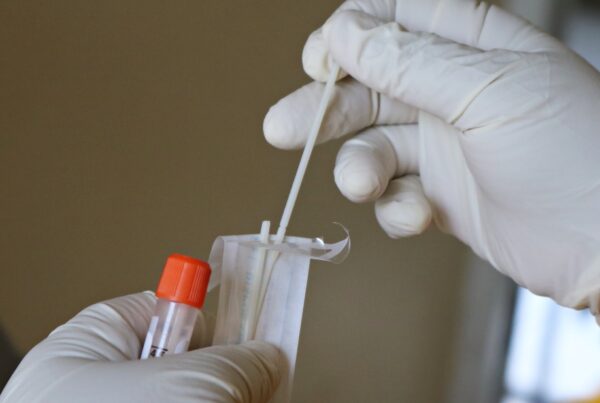The Big Picture
An update on the number of cases and deaths from the coronavirus: As of Monday, January 18, the United States has over 23 million cases and 394,000 deaths from the virus. North Dakota, South Dakota, and Utah have the highest case rates (cases per 100,000), but California, Texas, and Florida have the highest number of cases in the country. As cases continue to rise, the inequalities of this virus become even more apparent. For example, Latinos in Los Angeles, the first county in the country to surpass 1 million cases, have death rates that are twice as high as those of other ethnicities. Even as the vaccine begins to alleviate some uncertainty, it is apparent that this virus is not slowing down and attacking vulnerable populations.
Conversations on the PPE Crisis and Get Us PPE’s Fair Distribution Algorithm Launched
It is easy to remember the days in March where horrifying stories of healthcare workers using cloth masks and garbage bags in place of PPE flooded news centers. But in recent months, conversations on the PPE crisis have lessened, leading many to believe this problem is resolved. However, Dr. Shikha Gupta, executive director Get Us PPE explained to MedCity News that “The PPE crisis is certainly something that is still happening, in fact, it is raging and escalating as Covid cases escalate. But it’s not being discussed in those terms by those who have the power to make large scale change.” Get Us PPE data corroborates these statements. With personal protective equipment (PPE) requests increasing by more than 260% from November to December and of all the incoming requests, 63% of facilities had no supply of at least one type of PPE. Dr. Gupta explains that Get Us PPE was supposed to be a temporary project, but due to ongoing need, the organization has turned into a national nonprofit that has distributed over 6.4 million pieces of PPE.
Dr. Gupta also explains how the best source of information is always from healthcare workers themselves. “We are getting a lot of conflicting reports about PPE supply and demand and availability, but we have found that our best source is really talking to people on the ground at those facilities,” Dr. Gupta says. To supplement these voices, Get Us PPE has created a Fair Distribution Algorithm to equitably prioritize PPE distribution, launched in last weeks’ Get Us PPE Shortage Index.
Ideas for Equitable Vaccine Delivery
Dr. Megan Ranney, co-founder of Get Us PPE wrote in CNN about unequal access to vaccines and the ways in which distribution systems can be improved. Unfulfilled promises of rapid distribution have left healthcare workers and senior citizens frustrated. Many people who were promised they were “first in line” still can’t seem to get a hold of their first dose. Dr. Ranney explains that wealthy and well-connected people have been able to use concierge doctors, and individuals with the time and resources to stay on hold with facilities, drive to vaccine sites, etc. have been unfairly prioritized.
Dr. Ranney outlines three methods of distribution:
- First is “treating vaccine distribution like a class list.” This means lining up eligible citizens in alphabetical order and simply going down the list. While it leaves little room for wealthy individuals to bypass the system, it fails to prioritize the most at-risk candidates.
- The second option is a first-come-first-serve system, yet we have seen the downfalls of this approach as thousands of senior citizens lined up in parking lots to get the vaccine recently.
- Finally, vaccine distribution can be handled through an algorithm. While this may seem like a foolproof system, algorithms that are fed biased data will project biased results. For example, an algorithm intended to determine the vaccine order at Stanford accidentally prioritized doctors who were working from home due to incorrect input of information.
Dr. Ranney argues that our best option is to distribute all available vaccine doses by “expanding the categories of who can get the vaccine to avoid wasting doses and simultaneously increasing both funding and support for getting the shot in people’s arms in ways that explicitly address considerations of equity and don’t let people use their influence or resources to cut the line.”
This Week at Get Us PPE
The National Air Duct Cleaners Association (NADCA) called on businesses to donate to Get Us PPE. Emphasizing the shortage of PPE in both their industry and for healthcare workers, NADCA urged the 1300 small businesses it represents to help increase access to PPE for all frontline workers.
Tech Republic highlighted Parachute, a Get Us PPE partner, as a top pick for face masks. A bedding company that is using its extra material to create masks, Parachute has worked with Get Us PPE to provide cloth masks for those who need it the most. For every mask you buy through Parachute, one is donated to Get Us PPE.





